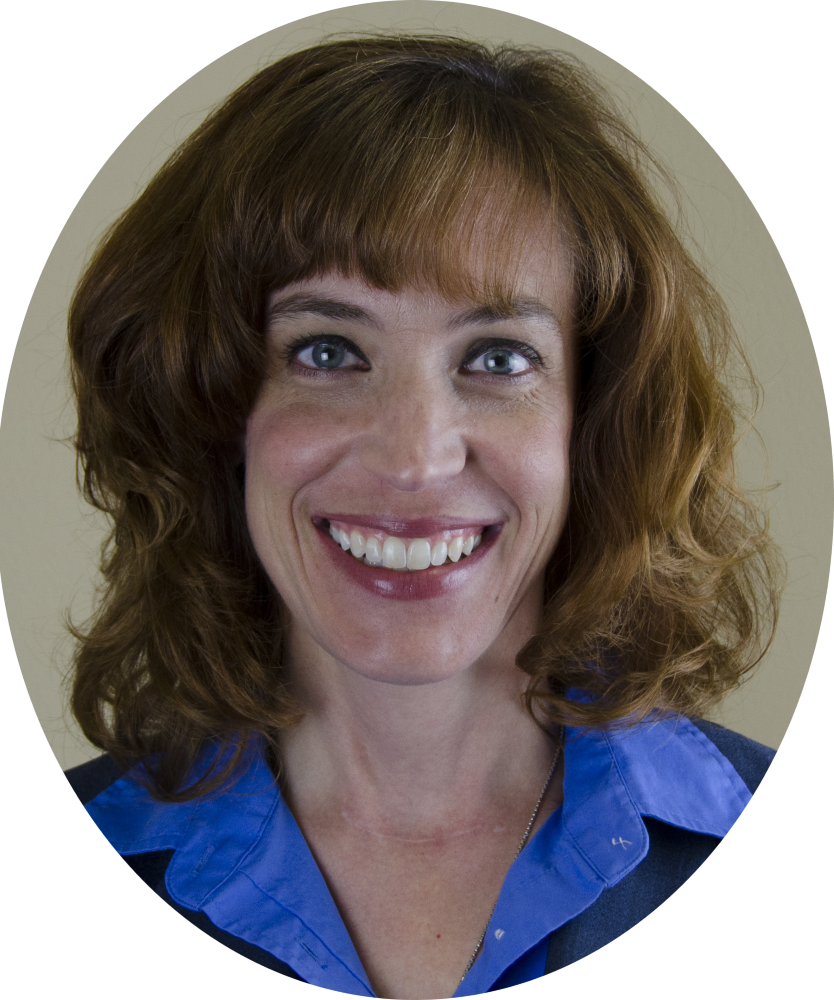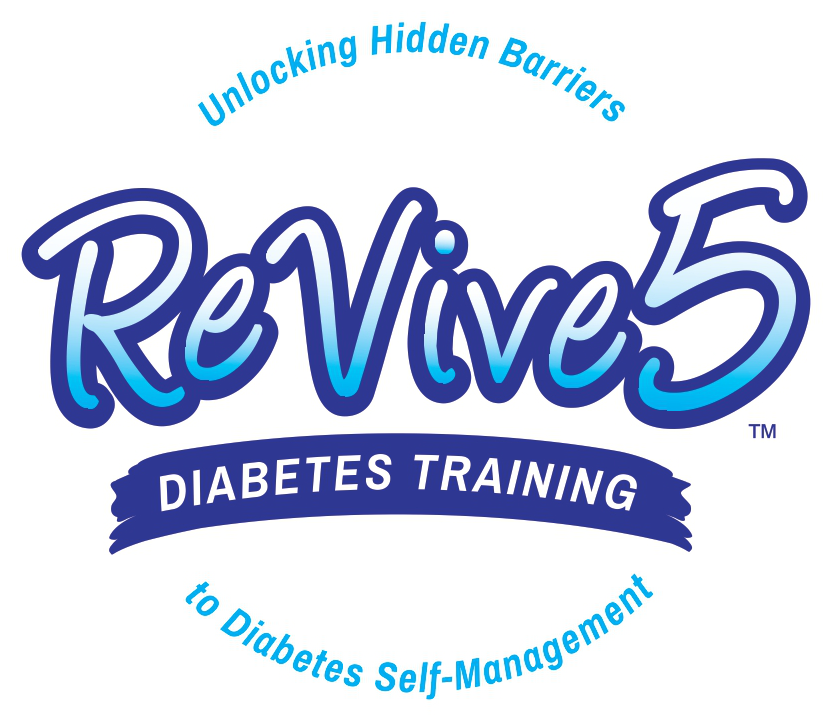We asked Dr. Susan Guzman (see bio below), lead trainer and clinician in the Embark Trial to share insights on providing the best care to people with diabetes. Learn more by joining our ReVive 5 Diabetes Training Program where the team shares evidence-based tools and the step-by step approach utilized in the Embark Study.
From all of your research and clinical experience, what are the biggest takeaways you would like to share?
Over time, our research has shown that the best way of helping a person with diabetes is to have them define their challenges and come up with their own goals and strategies. They can learn how to become their own ‘fixers”.
Dr. Guzman

In hindsight, this sounds like the opposite of what we might have expected. With much of our focus on diabetes technology and the use of new and varied medications, all of which are important, it seems we may not be listening to what people are asking for; what their goals and targets are, how they define their problems, what the impact of diabetes on their life has been, and how they want to address these difficulties.
We clinicians are trained as “fixers” and “doers.” We see a problem and we jump to fix it – and in most cases we have the skills and knowledge to do just that. But an exclusive focus on being a “fixer” means an exclusive focus on numbers, targets and mechanisms – we often forget to acknowledge the expertise the person with diabetes brings to the table.
“Over the years of being a diabetes clinician and researcher we have learned to spend more time listening and less time “doing.”
We can get started by encouraging them to identify problems and goals on their terms that are defined by their language. We can help by adding to or modifying the direction they suggest and by providing helpful tools, techniques, and information to reach the goals that they set.
Ultimately, it is the person with diabetes who must make it all work. The key take-away is to move away from being a “fixer” and shift to becoming a “curious coach” by asking the right open-ended questions and really listening to the response.
Reinvisioning our role as a “coach” instead of a “fixer” also enables the clinician to identify the often-hidden underpinnings of barriers and the problematic emotional narratives that drive management difficulties – like feeling like a failure, pounding oneself with self-blame, believing that their glucose levels are unmanageable, feeling like a burden on their family, and feeling hopeless.
How can we expect people to make goals and effectively engage in the complex daily management of diabetes when they are experiencing these burdensome feelings and thoughts?
By addressing concerns and helping with the specifics of diabetes management problems while seeing the whole person in their life context (person-centered care), we can help people with diabetes discover that they are truly their own best fixer.
Listen to Susan address a new innovative approach to diabetes distress by joining our ReVive 5 Program.
ReVive 5 Diabetes Training Program Expert Faculty
Susan Guzman, PhD is passionate about helping to change the conversations in diabetes away from shame, blame and judgment to those based on facts, empathy, and engagement. She has been part of a joint ADA/ADCES effort to address problematic language and messages in diabetes.
Dr. Guzman is a clinical psychologist specializing in diabetes. In 2003, Dr. Guzman co-founded the Behavioral Diabetes Institute (BDI), the first non-profit organization devoted to the emotional and behavioral aspects of living with diabetes.
At BDI, she serves as the Director of Clinical Education, developing and leading programs for people with diabetes and healthcare professionals. She has helped develop and facilitates diabetes distress group interventions for two NIH-funded research studies for adults with type 1 diabetes.
Unlock insights for managing diabetes distress with the experts!
Join us live on June 17 & 24, 2024 for our
ReVive 5 Diabetes Training Program:
The 2024 ADA Standards of Care now recommends annual screening for diabetes distress. If you are wondering how to screen for distress and tailor education based on the results, we encourage you to join this unique training program.
This two-session training provides the essential steps to address diabetes distress combined with an innovative approach to helping people make sense of their glucose data.
The first session is team-taught by experts in the field of diabetes distress and effective communication approaches. Dr. Larry Fisher kicks off the program by describing the difference between depression and distress and interpreting Diabetes Distress screening results. Dr. Susan Guzman uses a case study approach and step-by-step communication strategies to address responses from the Diabetes Distress screening tool. This session includes an abundance of evidence-based approaches that you can apply in your clinical setting.
Coach Beverly leads the second session. During this three-hour program, Beverly describes insulin dosing strategies, meter and sensor data interpretation, and common issues encountered by people using diabetes technology. Case studies include tools to help individuals discover what changes are needed to get glucose to target, coupled with the communication skills discussed in the first session. In conclusion, the team of instructors review a case study that pulls together all the ReVive 5 elements.
“ReVive 5” breathes new life into our relationship with diabetes, bringing a fresh perspective to both the person with diabetes and the provider.
Can’t join live? That’s okay. Your registration guarantees you access to the recorded version of the series, along with podcasts and resources for one full year.
Accredited Training Program:
- 15+ CEs – Includes the 7-hour ReVive 5 Training Program, Certificate, and 5 FREE bonus courses to supplement content.
- A comprehensive set of assessment tools, educational materials, log sheets, and resources.
Team of Experts:
ReVive 5 is taught by a team of 3 Interdisciplinary Experts:
- Lawrence Fisher, Ph.D., ABPP, Professor Emeritus, UCSF
- Susan Guzman, PhD
- Beverly Thomassian, RN, MPH, CDCES, BC-ADM
Speakers Interviews – Learn more about the ReVive 5 Team
Sign up for Diabetes Blog Bytes – we post weekly Blog Bytes that are informative and FREE! Every week we post one exam practice Question of the Week and Rationale of the Week. Sign up below!
Recent Blog Bytes
- How Not Winning Motivated Me to Write A Book
- Question of the Week | What Not to Say to Overwhelmed Individual
- February 2026 eNews
- Rationale of the Week | Best Response for Facilitating Positive Health Behavior Change?
- Question of the Week | Which Feature Most Strongly Supports a Diagnosis of HHS Rather Than DKA?
The use of DES products does not guarantee the successful passage of the certification exam. CBDCE and ADCES do not endorse any preparatory or review materials for the CDCES or BC-ADM exams, except for those published by CBDCE & ADCES.











